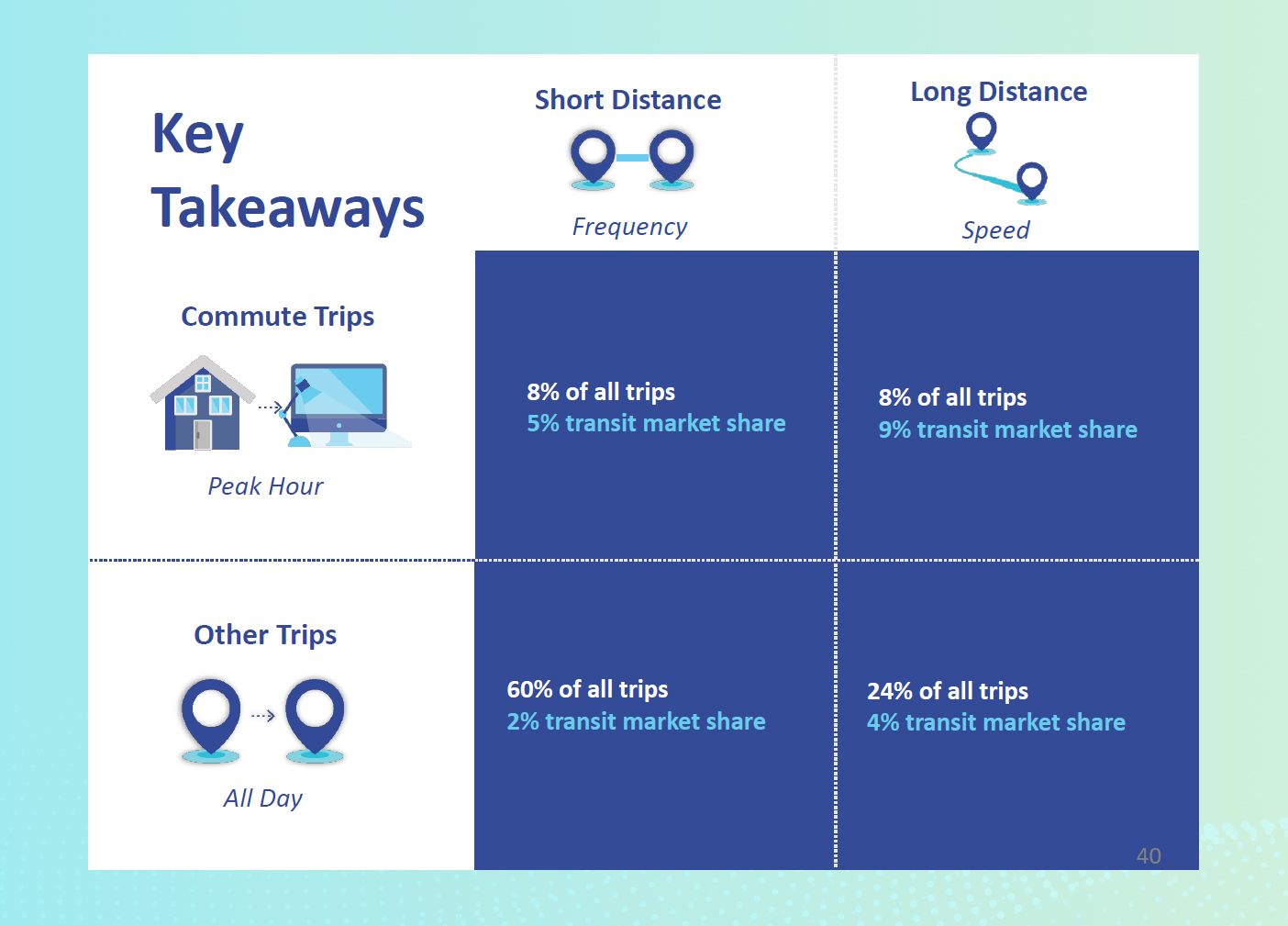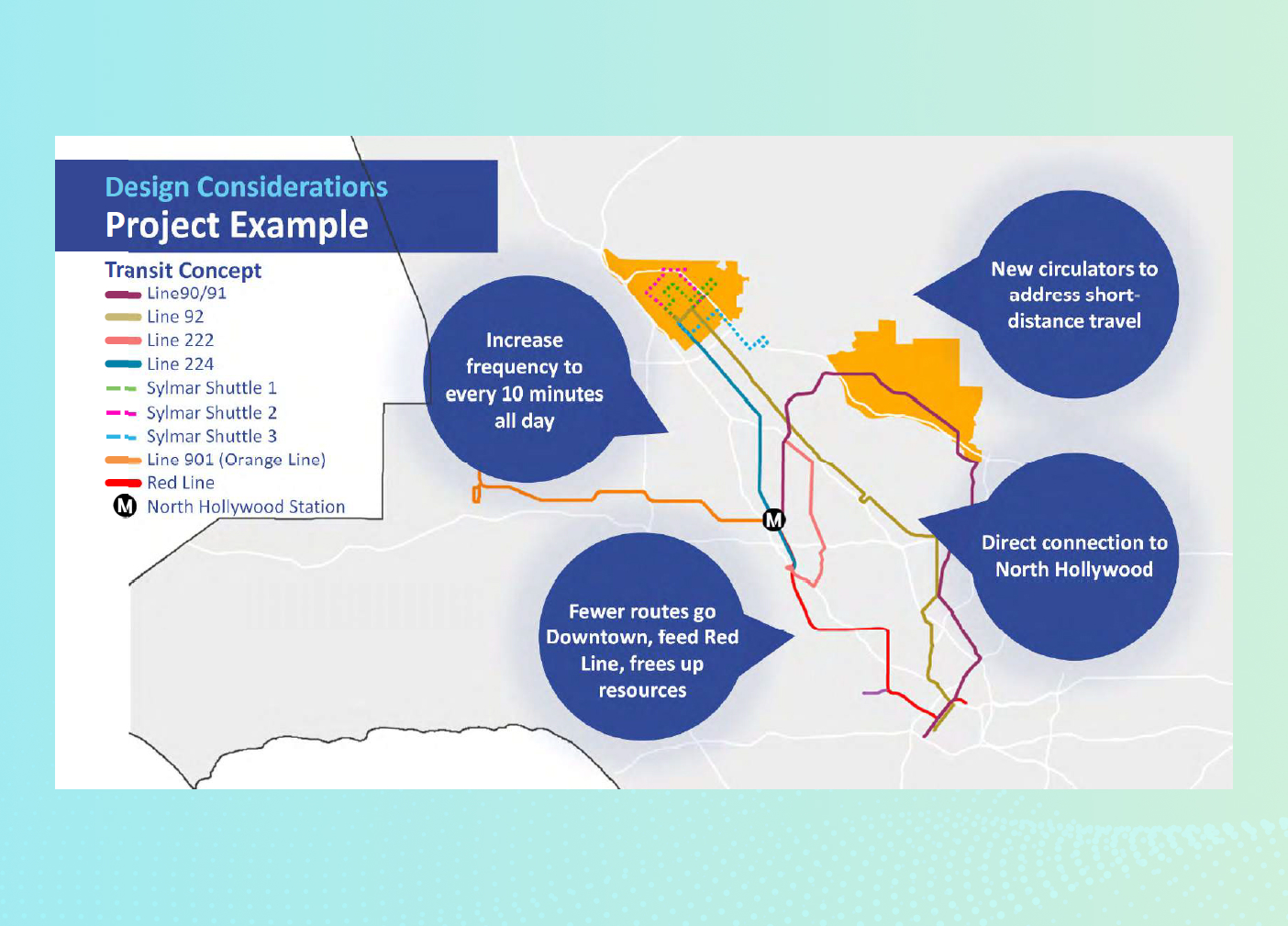Partnering for Progress: A Network Redesign Story
CASE STUDY: Los Angeles Metro
Overview
LA Metro’s NextGen Project redesigned the regional bus network to align service with evolving travel patterns in the region, better serve the needs of equity populations, build out a service recovery plan post-COVID, and enhance the competitiveness of transit in the region. The approach leveraged LOCUS data, integrated with transit and routing datasets, to identify priority travel markets and evaluate the efficacy of the new system.
Challenge
LA’s public transit system, like many other cities, had struggled to keep pace with the changing travel patterns, evolving land use, increased competition from other travel modes, and most recently COVID. Issues such as frequency, service reliability, and limited funding led to years of declining ridership. LA Metro recognized that staying competitive and prioritizing the needs of those that rely most on these systems, while growing the choice rider market, were critical to increase ridership and enhance socio-economic vitality and mobility.
Solution
The LOCUS-powered market analysis laid the foundation of LA Metro’s NextGen approach and established LA Metro as the trailblazer in big data-driven network redesigns, with a focus on fast, reliable, and frequent service. By thoughtfully fusing multiple datasets (such as transit farecard/ridership and routing), the study developed an award-winning framework for comprehensive understanding of the travel markets and their unique needs and problems.
Methodology
-
Data Integration: Merging LOCUS data with farecard, APC, and routing attributes to develop comprehensive travel market profiles.
-
Origin-Destination Analysis: Identifying crucial origin and destination pairs and key hubs or transfer connections for optimizing public transportation routes.
-
Market Classification: Building a framework to triage markets by potential and current state of transit market
-
KPIs for Network Evaluation: Comparing network alternatives on competitiveness, accessibility, equity impacts, population/employment coverage, route simplicity, and modeling ridership impacts.

Results & Impact
This project merged 148 lines, introduced 91 new lines, and discontinued 24 routes. The project details, published in the Transportation Research Record (Volume 2673, pages 202-213), have become the gold standard for network redesign projects, setting a benchmark for methodology in the industry.
Since the full rollout in December 2022, Metro has witnessed 12 successive months of sustained ridership growth, with more 14% YoY growth in bus ridership. The NextGen Team won an award at the Innovations in Transit Performance Measurement at the Transportation Research Board’s Annual Meeting in 2019.
